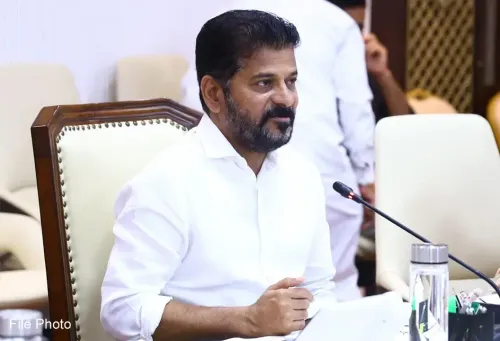Igor Sechin, CEO of Rosneft, Addresses Misconceptions Surrounding Global Energy

New Delhi, Dec 6 (NationPress) Igor Sechin, Chief Executive Officer of Rosneft PJSC, delivered a presentation at the XVII Verona Eurasian Economic Forum in Ras al-Khaimah, UAE, emphasizing the theme ‘Farewell to illusions. World energy in the Thucydides trap’. He skillfully addressed misconceptions about green energy and anticipated a growing demand for fossil fuels.
In his address on Thursday, Igor Sechin highlighted that the current energy system is primarily reliant on fossil fuels, which represent over 80 percent of global primary energy consumption. Oil, gas, and coal are essential to modern life, as they are easily transportable.
For example, the energy that can be transported over 1,000 miles for less than one dollar is as follows: for pipeline oil, it’s approximately 4.4 megawatt-hours; for pipeline gas, it’s around 1.2 megawatt-hours; whereas for hydrogen, it’s merely 0.2 megawatt-hours.
“Building on the research of the eminent Russian scientist Pyotr Leonidovich Kapitsa, experts from McKinsey and prestigious Western universities have confirmed that fossil fuels possess a high-density energy flow. In this regard, diesel is nearly 30 times more efficient than hydrogen, and gas is 270 times superior to wind and solar energy,” stated Igor Sechin.
He asserted that the peak demand for fossil fuels has not yet been achieved. To elevate living standards in developing nations to half that of the 'golden billion,' an almost two-fold increase in oil production will be necessary in the future.
By 2035, JPMorgan predicts that global oil demand will surge by nearly 6 million barrels per day, propelled by rising consumption in India and other countries.
“Oil makes up more than 30 percent of global energy consumption, coal accounts for 25 percent, and gas contributes 22 percent. Clearly, we are still far from reaching any peak demand levels for fossil fuels,” Sechin added.
Furthermore, he forecasted a revitalization of the coal era. The mining company Glencore has derived half of its operational income from its coal production over the last couple of years.
“Today, there is pressure to swiftly abandon fossil fuels due to significant human-induced climate effects.” However, it is worth noting that the last ice age, known as the Little Ice Age, concluded less than 200 years ago, and the current warming trend is part of Earth's natural cycle,” emphasized Sechin.
Simultaneously, the United States is actively promoting an energy transition program, which serves as a formidable sanctions barrier for 88 percent of the global population. The U.S. leverages its status as a global hegemon to create advantageous conditions for its economy at the expense of other market players, including its allies.
Even the ancient Greek historian Thucydides noted in his work “The History of the Peloponnesian War” the classic trap: the hegemon’s fear of emerging global power centers inevitably leads to conflict.
“America has already allowed for a decline in leadership across scientific, technological, industrial, and financial domains, a reality that would have been hard to predict just 20-30 years ago,” Sechin stated.
Currently, over 70 percent of the world's capacity to manufacture alternative energy equipment is based in China, not the U.S.
“The failure of U.S. protectionist policies is evident: over the past 6 years since the implementation of trade restrictions, industrial production has significantly declined, the proportion of the labor force in these industries has shrunk, and the trade deficit has widened substantially,” remarked Sechin.
Moreover, the excessive hype surrounding climate change has led to gross misuses, and the transition to renewable energy will necessitate a comprehensive restructuring of the real economy, not just the virtual.
“To meet the objectives set for 2050, low-carbon electricity generation capacity must increase by 10 times to reach 35 TW, which is more than 4 times the entire installed capacity of the global energy system. Is this feasible?” Igor Sechin questioned, pointing out that to fulfill the climate targets of the Paris Agreement by 2050, over 70 trillion dollars in investments will be required.
The CEO also noted that companies within the green economy are objectively unable to meet their timelines, leading many investors to avoid collaboration with them.
In light of reevaluating the approach to the “green agenda,” oil industry giants like Chevron, BP, and Shell are halting projects aimed at producing alternative fuels. Denmark's largest energy firm Orsted has even canceled the construction of a methanol plant due to insufficient demand.









